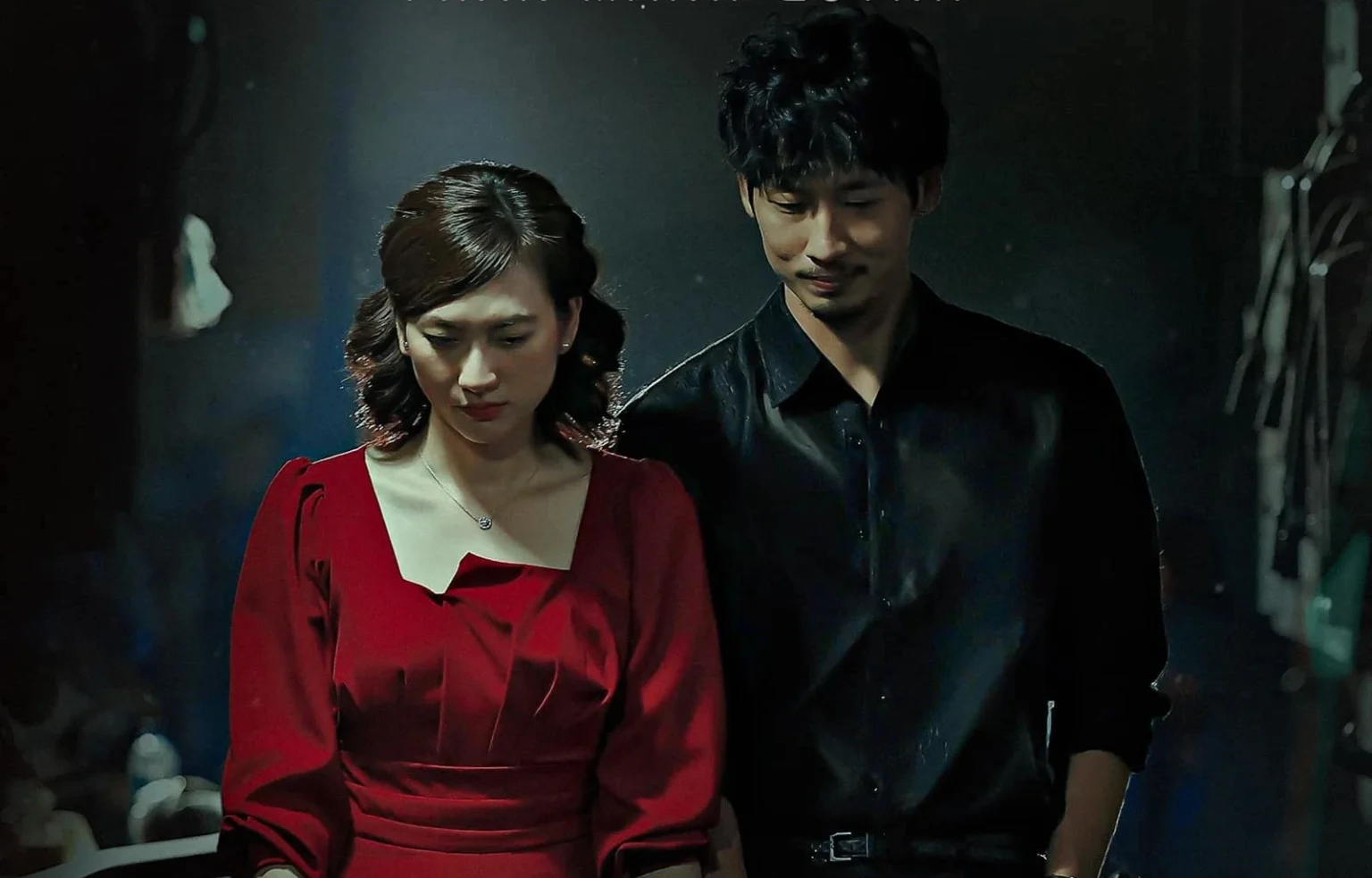Mai moves to a new town, hoping for a fresh start. As a masseuse, she works hard but also faces gossip and disapproval from others in her community. When she meets her playful neighbor Duong, a romance blossoms between them, despite Mai’s hesitation to open her heart again.
Yet old wounds run deep. In her past, Mai experienced trauma that still brings her shame. She guards herself against getting too close to anyone for fear they may learn the truth. Meanwhile, Duong has problems of his own—an overbearing mother who refuses to let him live as he chooses.
As Mai and Duong’s relationship grows, so do the obstacles in their path. Resentful neighbors work to undermine Mai, while toxic ties complicate Duong’s dreams. Perhaps most frightening of all are the secrets from the past that could destroy the trust between them.
Through it all, Mai must find the courage to be her true self, accept a love she doubts she deserves, and face hard truths about power and vulnerability. With empathy and resilience, she works to overcome adversity through compassion for herself and others. But old wounds can reopen, and past actions may have unforeseen consequences. Mai’s journey is one of hope, heartbreak, and hard-won wisdom.
Heart and Home
Mai arrives in town with a past that haunts her. As a masseuse, she works to build an independent life for herself and her daughter. Yet her work is met with disapproval in the conservative community. Behind her smile, Mai wrestles with shame and trauma from times before. Starting anew, she keeps others at arm’s length for fear they may discover—and judge—the truths of her history.
Enter Duong, a cheerful neighbor who is always flirting but never committing. As a “playboy,” he seems Mai’s opposite—carefree and popular with the ladies. But beneath his charm lies frustration with his overbearing mother, who refuses to cut the apron strings. Stifled by her control, Duong dreams of pursuing his passion for music if only he can escape her grasp.
When Mai and Duong meet, sparks fly against their objections. Though both guarded their hearts, they seemed to see in each other the balm the other sought. For Mai, Duong brings hope; her past need not define her future. And in Mai, Duong finds independence and inner strength he admires.
Others touch their lives as well. Mai finds support from a kindly benefactor who sees her worth. And her daughter gives purpose beyond herself. But rival Trinh means Mai harm, threatened by her growing success. As for Duong, his artistic spirit may find wings if only his mother’s grip loosens at last.
Through it all, Mai and Duong’s bond deepens, though challenges loom that could tear their hearts’s home apart once more.
The Journey Begins
Settling into a new place, Mai hopes for a fresh start as a masseuse. But gossip swirls in her private life as distrustful neighbors make her feel alone. Then she meets Duong, her cheerful but flirtatious neighbor. Despite Mai’s hesitation, Duong pursues her with charm and humor, slowly winning her over.
As their relationship blossoms, Mai’s past threatens to ruin what they’ve found. Deep trauma from earlier times creeps into her mind, and shame weighs heavy on her heart. Duong presses to learn her secrets, wishing only to offer comfort. But will knowing the truth change how he sees her?
More troubles emerge. Rivalous coworkers grow jealous of Mai’s talents, seeking to undermine her success. Family dynamics also twist in painful ways, with Duong’s overbearing mother meddling and Mai’s gambling father depending on her for support.
Just as their bond strengthens to weather these challenges, the story jumps ahead years later. Now Duong has mysteriously married another. What dashed Mai’s hopes and drove them apart? Without answers, only more questions remain about what might have been for their journey together.
Through it all, the film explores how love, trust, and forgiveness can either heal old wounds or open new ones. And Mai must find the courage within to own her story—flaws, strengths, and all—and journey home at last to the peace she deserves.
Beyond Surface Impressions
Beneath Mai’s gentle manner lies a hidden pain, as her past brings deep shame that erodes her self-worth. Years after leaving that life, its trauma still grips her tight. Only through love might its hold loosen if she dares to trust another with her secrets.
Toxic ties also twist Mai and Duong’s unhappy bonds with their parents. For Mai, a reckless father only depends while destroying what little shelter home provides. And Duong finds no escape from his mother’s smothering grasp; his pet name, “Worm,” reminds him where the real power lies. Both yearn for lives of their own making.
As an independent woman, too, Mai faces constant judgment. Gossipmongers call her vulgar names, assuming the worst. Some neighbors even resort to trash-leaving tactics to drive her away. A masseuse by trade, society still sees only the shadows of past wrongs.
Yet caring souls prove that not all make surface impressions. Open-hearted Duong looks deeper, seeing Mai for who she is and who she’s becoming. Their union questions norms through its age gaps and class divides. With patience and understanding, might two hearts heal each other of past pains?
‘Mai’ peels back layers to find the tender truths beneath facade and rumor. It asks us to look past surface impressions, into the struggles that shape souls, and see how love and forgiveness can rebuild lives thought broken beyond repair.
Capturing Raw Emotion on Screen
Tran Thanh draws viewers into Mai’s world through bold directorial choices. His creative angles and point-of-view shots immerse us in the characters’ perspectives. For good or ill, this grabs our attention from the start.
Yet it’s the performances that carry the film’s heart. Phuong Anh Dao breathes life into Mai with nuanced vulnerability. Her eyes express quiet pain never addressed and fierce protection over wounds reopened. In each scene, she ensures Mai stays real. Tuan Tran matches her authenticity as Duong, showing care beyond flirtatious smiles. Together, chemistry creates a romance we feel in our bones.
Around the leads, the visuals paint vivid scenes. Shots are captured with care, not tricks. We follow Mai through a typical workday and new home, meeting judgment in our neighbors’ eyes. Later, joy on early dates feels genuine because of how their smiles are framed. Darkly, we witness abuses that are all too common yet hidden. Such realities stick with us through elegant storytelling.
Complementing is the score, enhancing without overwhelm. Melodies match emotional climaxes, whether joy or sorrow. Light where appropriate, and elsewhere, tones reverberate the soul-deep struggles these characters face alone yet now share together. Music, images, and unrivaled performances combine to captivate and move the heart long after the titles roll. Raw feeling, truthfully conveyed, ensures Mai remains unforgettable.
Complex Messages of Mai
Mai weaves social commentary within an emotional drama. It pushes boundaries in addressing the injustices faced by single women living alone. Yet some story beats reinforce traditional expectations.
This film brings light to judgment over occupations still seen as taboo. Mai faces harassment simply for her independence. While showcasing such realities adds depth, villains feel one-dimensional. Their motivations remain unclear.
Early scenes depict Mai and Duong’s bond beautifully. Their care for each other feels genuine. But the ending leaves questions. Were outside forces truly responsible for their separation? Or did the writing falter in justifying it?
Throughout, dynamics shift deftly between tones. Heavy subjects like abuse are weighed against moments of levity. Scenes transition skillfully from joy to heartbreak. Such layering mirrors life’s complexity. Both darkness and hope can coexist within a person.
Genres also merge seamlessly. Comedy becomes drama as romance deepens. Later, mystery elements will surprise. Each twist keeps viewers engaged until an abrupt conclusion. While somewhat jarring, it challenges expectations. Not all stories end neatly.
Overall, Mai balances heavy themes and light touches capably. It opens dialog on realistic issues, yet with nuance missing in some character aspects. Social commentary and emotional core resonate, but messaging holds inconsistencies worth exploring further.
Lingering Resonance of Mai
Overall, Mai leaves a lasting impact through its heartfelt exploration of trauma, love, and human perseverance. Phuong Anh Dao and Tuan Tran bring such nuanced vulnerability to Mai and Duong that one can’t help but feel invested in their journey. Though messy at times, director Tran Thanh grapples with real issues many can relate to.
The film has generated discussion since its release regarding its portrayals of gender expectations and stigmatized careers. But more than delivering answers, Mai opens a compassionate dialogue. It reminds us that beneath surface assumptions, each person fights private battles. While some story choices feel half-baked, its characters feel truly lived-in.
Two years later, Mai remains rewatchable for its emotional rawness. Layers within even minor characters continue to reveal themselves with repeat viewings. Simple yet profound, it proves some tales resonate through honest struggles, not formulaic plots. Ultimately, Mai offers comfort; no one walks alone, and from our darkest moments can bloom new beginnings. Its beauty lies in never losing sight of humanity.
The Review
Mai
While not without flaws, Mai offers an impactful glimpse into the inner lives of its characters. At its best, it explores weighty themes of trauma, societal judgments, and the resilience of the human spirit with empathy and emotional authenticity. Anchored by stellar performances, the film succeeds in stirring reflection long after viewing.
PROS
- Nuanced performances by Phuong Anh Dao and Tuan Tran felt authentic and emotionally immersive.
- Addressed meaningful issues like stigma, gender expectations, and overcoming past trauma with care.
- Achieved moments of profound vulnerability in glimpses of human perseverance.
- Crafted emotionally complex characters that lingered with viewers.
CONS
- Narrative execution faltered at times with some slack pacing and character motivations.
- Contained mild patriarchal elements that reduced the impact of otherwise progressive themes.
- The ending fell somewhat flat and did not fully satisfy the given investment in characters.
- Villain characters lacked dimension and clear backstory-driven behaviors.



















































